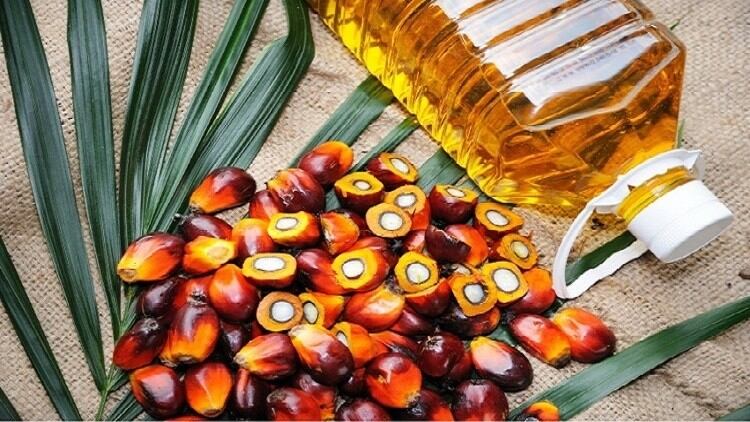Marine dream: Aussie scientists tip microalgae-based cellular agriculture for functional food innovation
Marine microalgae-based cellular agriculture is a promising new way to sustainably produce new functional foods and plant-based ‘meat’, according to Australian researchers.
Flinders University Professor Wei Zhang, who is co-leading a bid to establish a national Marine Bioproducts Cooperative Research Centre (MB-CRC) in Australia, says the single-cell photosynthetic organisms from the ocean could be the solution to the world’s protein shortage.
The CRC’s mission is to find ways to develop the third-generation of Australian high-value marine bioindustry (as opposed to the first-generation of fisheries and the second-generation of aquaculture) and transform Australia’s emerging marine bioproducts sector into a globally competitive industry.
“Our research spans the entire value chain, from microalgae cultivation and circular advanced biomanufacturing to the development of high-value functional food,” Professor Zhang says.
Plastic potential: ‘Eco-friendly’ plastic discovery can be extended to food packaging, say Singapore scientists
The Singapore-based research team which discovered that plastic has a potentially lower environmental footprint than cotton and paper bags has confirmed that this discovery can also be applied to the plastic food packaging used by the majority of food and beverage manufacturing firms.
Earlier this year, research from the Nanyang Environment and Water Research Institute (NEWRI) at the Nanyang Technological University (NTU) made headlines when the team revealed that single-use plastic bags can have a lower environmental footprint than single-use paper and multi-use cotton bags in countries with developed waste treatment systems such as Singapore.
In terms of eco-friendliness, plastic bags made from high-density polyethylene plastic (HDPE) - the most commonly used type of grocery plastic bag - was found to be second only to reusable plastic bags made from polypropylene non-woven plastic bags (PNB), but better than options such as cotton and kraft paper bags which are often assumed to be better for the environment.
“This is because we looked at the entire production process and life cycle of the bag, from raw material extraction to make the bag, to production, to transportation, all the way until its disposal,” study head researcher and Director of the NEWRI Residues & Resource Reclamation Centre Assistant Professor Grzegorz Lisak told FoodNavigator-Asia.
Synthetic concerns: Study suggests plant essential oil as a potential natural anti-bacterial agent for meat products
Essential oils derived from plants have the potential to replace chemical preservatives in meat and meat products against bacterial contamination, according to latest findings.
Researchers who conducted this review said essential oils have anti-microbial properties from its bioactive components such as phenolic acids, terpenes, aldehydes, and flavonoids, and could act as a natural preservative.
“In recent years, consumers have shown an increasing concern about the use of synthetic chemical preservatives. There is an increasing tendency in using natural additives including antioxidants, antimicrobials, sweeteners, and colouring agents that originated from animals, plants, and microorganisms,” they wrote.
In this study, they reviewed the potential of essential oils in mitigating or inhibiting the growth of a bacteria, L. monocytogenes in meat and meat products.
The findings were published in the Frontiers in Nutrition journal.
Make Australian Healthy Star Rating mandatory to maximise reformulation - Study
Food and beverage products adopting the voluntary Health Star Rating (HSR) scheme in Australia and New Zealand are more likely to increase their HSR scores overtime, resulting in researchers calling for its mandatory adoption for the greater benefit of society.
The HSR scheme was first introduced in 2014 as a voluntary front-of-pack nutrition labelling of packaged foods to promote healthier diets. Products are rated from 0.5 (least healthy) to 5 (most healthy) stars. It must not be confused with back-of-pack nutritional information which is mandatory on all packaging.
Researchers from universities in Australia and New Zealand studied data of 58,905 products across both countries, observing that voluntary adoption of the HSR was associated to healthier product formulation (nutrient analysis) and improved HSR score (increasing number of stars), compared to products not on the scheme.
The findings were published in the PLOS Medicine journal.
Coconut and COVID-19: Philippines DOST-led study reveals virgin coconut oil reduce symptoms in suspected patients
A recent study led by the Philippines Department of Science and Technology (DOST) revealed that suspected COVID-19 patients administered with virgin coconut oil (VCO) had reduced symptoms and a faster recovery phase compared to the control group.
Conducted by the Food and Nutrition Institute (FNRI) at DOST, the findings were presented in a virtual briefing by DOST Secretary Fortunato dela Peña.
The study recruited 57 suspected COVID-19 patients in two quarantine facilities in Laguna, Santa Rosa Community Hospital Isolation Unit and Santa Rosa Community Isolation Unit.
According to the country’s Department of Health, suspected COVID-19 patients are defined as the presence of symptoms including cough, cold, body ache, headache, loss of taste, fever as well as recent travel history.




